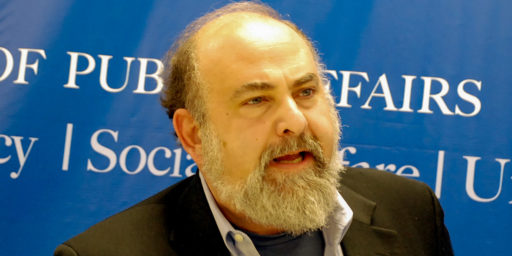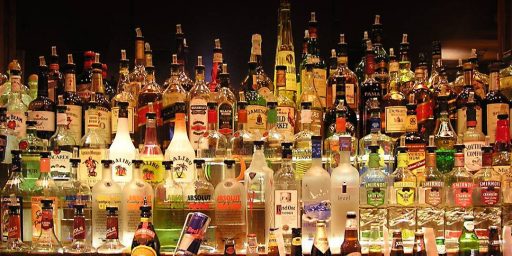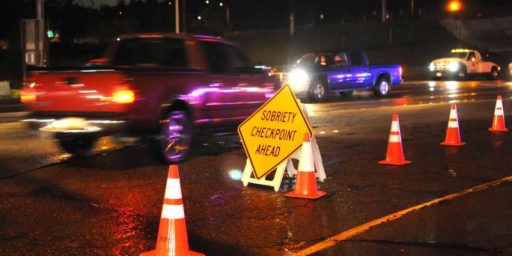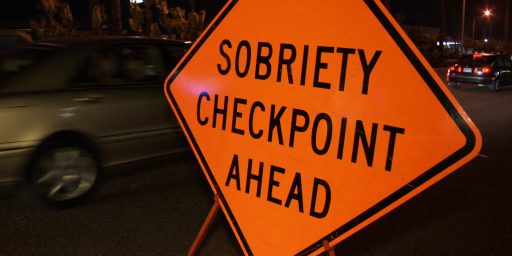On Drugs, Alcohol, and Crime
There is a really interesting interview over at Wonkblog with Mark Kleiman, UCLA Professor of Public Policy that is worth a read. Kleiman is an expert on policies around illicit drugs and speak with Dylan Matthews about issues such as drug policy, alcohol, and crime.
Some notable excerpts:
On the connection of drugs and crime:
Drugs are an important part of the question if you include alcohol as a drug. Take any dimension of the problem you like, except for source country violence. All illegal drugs combined are to alcohol as the Mediterranean is to the Pacific. We have our whole navy in the Mediterranean. And that’s true both of the drug policy machinery and those who are fighting the drug war, and of the drug reform movement, which, it seems to me, neglects the problem with the one drug we’ve legalized.
[…]
Half the people in prison were drinking when they did whatever they did…Of the class of people who go to prison, a lot of them are drunk a lot of the time. So that doesn’t mean that they wouldn’t have done it if they had not been drunk. It’s just that being drunk and committing burglary are both parts of their lifestyle.
He goes on to discuss an alternative method of policing problem drinkers (that could also apply to the use of other drugs), the 24/7 program being used in South Dakota:
Long got tired of sending people to prison, so he invented a program where they could agree to come in at 7 a.m. and 9 p.m. every day for a breath test with the promise that they’d be in jail if they failed. Forty-seven percent of the people screw up at least once, but more than 99 percent of the tests are taken and passed, and the result is reduced recidivism for DUI and assaultive crime. Beau Kilmer at RAND has a couple of papers showing the impact. It’s a proven program for alcohol. We’re learning that testing and sanctions is the right way to deal with drug use linked to crime, whatever the drug is and whatever the crime is.
In short: “If someone’s drug use is a problem for other people, you should make him stop using drugs. Then you can stop putting him in jail.”
I would recommend the whole piece.






I live 90 minutes away from the county court. I’m not sure if having to get up at 4:30am every day after only being allowed only five hours of sleep is actually an improvement on being in jail.
@Stormy Dragon: A fair point.
Still, I don’t think it detracts from the philosophical/policy point being made.
(although in honesty, jail still sounds worse 😉
This is one of those issues like gun control where I think there is clear, convincing evidence which won’t be acted upon because there are too many people too invested in self-justification. People extrapolate only from their own narrow experience: well, I handle guns and alcohol safely, therefore they are safe. They’ll fight tooth and nail to avoid being lumped in with the abusers, let alone taxed. It’s an uphill battle to get anyone to take any kind of a hit for the good of others, even when in the larger scope the good of the other also ends up being your good.
The 24/7 thing is very interesting, as is the use of GPS as an alternative to prison.
An important function of the war on drugs is to deflect attention from the carnage wrought by the legal stuff – alcohol, tobacco, and perscription drugs.
All the above come from CDC
There must be a name for the phenomenon of misplaced focus. Alcohol and tobacco kill massive numbers of people, so let’s all focus on weed which kills no one. It’s related in a way to scapegoating. We can’t be at fault, must be that guy over there, get him!
Top five groups lobbying to keep pot illegal
1.) Police Unions: Police departments across the country have become dependent on federal drug war grants to finance their budget. In March, we published a story revealing that a police union lobbyist in California coordinated the effort to defeat Prop 19, a ballot measure in 2010 to legalize marijuana, while helping his police department clients collect tens of millions in federal marijuana-eradication grants. And it’s not just in California. Federal lobbying disclosures show that other police union lobbyists have pushed for stiffer penalties for marijuana-related crimes nationwide.
2.) Private Prisons Corporations: Private prison corporations make millions by incarcerating people who have been imprisoned for drug crimes, including marijuana. As Republic Report’s Matt Stoller noted last year, Corrections Corporation of America, one of the largest for-profit prison companies, revealed in a regulatory filing that continuing the drug war is part in parcel to their business strategy. Prison companies have spent millions bankrolling pro-drug war politicians and have used secretive front groups, like the American Legislative Exchange Council, to pass harsh sentencing requirements for drug crimes.
3.) Alcohol and Beer Companies: Fearing competition for the dollars Americans spend on leisure, alcohol and tobacco interests have lobbied to keep marijuana out of reach. For instance, the California Beer & Beverage Distributors contributed campaign contributions to a committee set up to prevent marijuana from being legalized and taxed.
4.) Pharmaceutical Corporations: Like the sin industries listed above, pharmaceutical interests would like to keep marijuana illegal so American don’t have the option of cheap medical alternatives to their products. Howard Wooldridge, a retired police officer who now lobbies the government to relax marijuana prohibition laws, told Republic Report that next to police unions, the “second biggest opponent on Capitol Hill is big PhRMA” because marijuana can replace “everything from Advil to Vicodin and other expensive pills.”
5.) Prison Guard Unions: Prison guard unions have a vested interest in keeping people behind bars just like for-profit prison companies. In 2008, the California Correctional Peace Officers Association spent a whopping $1 million to defeat a measure that would have “reduced sentences and parole times for nonviolent drug offenders while emphasizing drug treatment over prison.”
http://www.republicreport.org/2012/marijuana-lobby-illegal/
Seems pretty sensible, doesn’t it?
And this need not effect the general population. You and I can drink, and handle it. If/when someone proves they cannot (say, by repeatedly breaking the law while intoxicated), then it’s time to enforce sobriety.
Mark Kleiman is going to be the WA state pot Csar, isn’t he? I read his blog occasionally. He’s challenged my thinking at times (re: the harmlessness of pot. Short version: if you simply compare it to alcohol, of course it’s less harmful. That does not mean zero harm, which those of us who get overzealous arguing for legalization can be prone to claim).
Ever adding an ancient perspective:
Arisototle noted with approval laws in his own time which tripled the penalties of people who are drunk when they commit their injuries or trespasses.
Grotius (Law of War and Peace) asserts that when people commit offenses while in a drug-induced delirium, they should be punished exactly as if they were in their right minds. Grotius argued that, though the guilt at the time of the offense may be less, the person is guilty of taking the drug and being in the delirium to start with, and so, add them up, the total guilt is the same, and it makes no difference what fraction of guilt to assign to which part of the person’s total guilty actions.
Fast-forward to present-day United States. I have read of instances where drug use is grounds for excusing criminal behavior. (A kind of insanity defense.) I have also read drug use being plead in Court by defense attorneys: it is being treated in society as a mitigating circumstance.
I believe this country would be better off with the older jurisprudence, where drug use is, if anything, an aggravating circumstance surrounding damage or crime. Also, some countries in South America have no controled substances except for outright poisons. (I have been told, “Be careful going into a pharmacy in Argentina: the druggest will dispense to you whatever you ask for: no doctor’s prescription is needed.”) These countries do not have drug laws of the kind we are used to in this country. Instead, they must surely have a drug jurisprudential sensibility (pardon the baroque phrase) that allows drugs to be “legal” in the country while yet the country does fully protect itself from damage and injury that may be committed by drug adicts.
If drug addicts can get away with serious crime, and have their sentences reduced for murder in this country, then, at least for those drug users who are also criminals, drug use is legally a far safer thing here in the United States than in Argentina. It positively protects a person from legal consequences of his other actions.
* * * * *
Also, on the phrase “War on Drugs.” Both War and Drugs are serious issues, but the phrase “War on Drugs” is just silly. Are these “Drug Warriors” really going to be taking prisoners of war, have internments of people caught on the wrong side of the border when hostilities commence, issue ultimata before the onset of armed conflict, and so forth? Obviously these people have not taken even a passing glance at Grotius, or other expositions of international law, in all their tough talk of “war.”